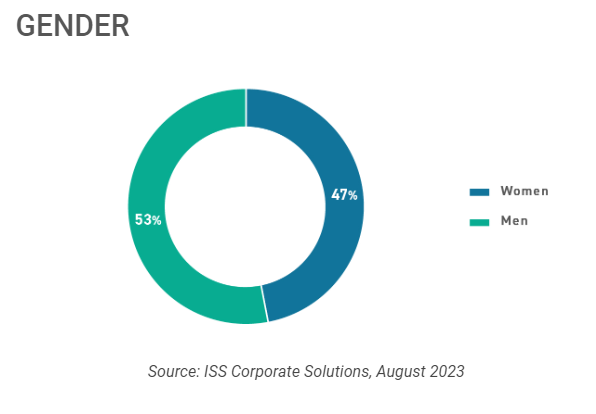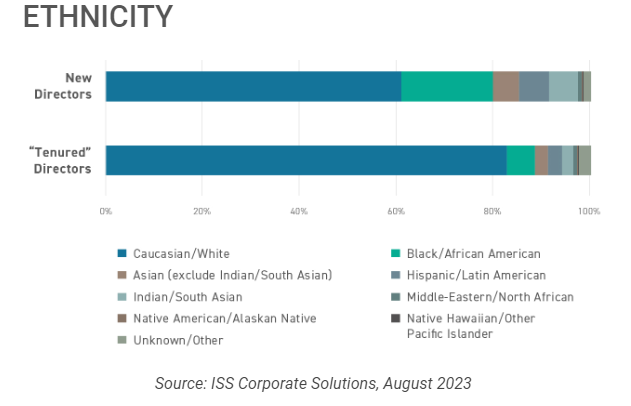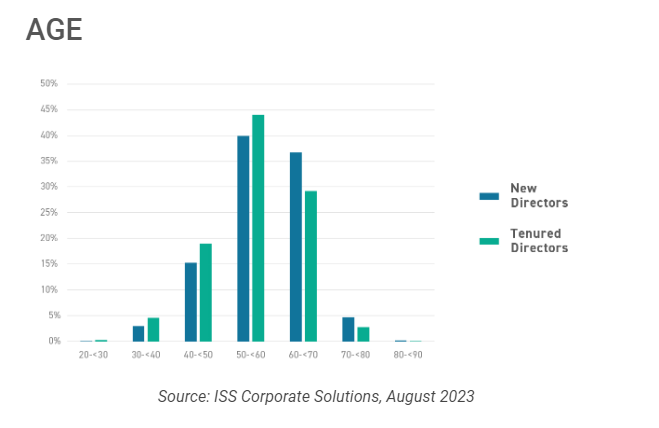Subodh Mishra is Global Head of Communications at Institutional Shareholder Services (ISS) Inc. This post is based on an ISS Corporate Solutions memorandum by Sandra Herrera Lopez, Ph.D., Vice President, ESG Content & Data Analytics, & Veronica Nikitas, Senior Associate, Compensation & Governance Advisory at ISS Corporate Solutions.
A look at the demographic makeup of the latest independent board directors
Bringing on new board members presents a valuable opportunity for companies to benefit from fresh insights and expertise. In the following analysis, ISS Corporate Solutions examined the current directors across Russell 3000 companies to understand the diverse composition of the most recent group of independent directors.
KEY FINDINGS:
- Underrepresented groups including women, Asians, and African Americans are gaining ground
- The average age of new directors is 58, which is higher than the average age for tenured directors when they joined a board
- 28% of new directors participate in another Russell 3000 board

The percentage of women among new directors (46.5%) is higher than that of female tenured directors (27.8%). The top industries where most new directors are women include Household and Personal Products (59.1%), Consumer Discretionary Distribution and Retail (53.6%), Food, Beverage & Tobacco (51.8%), Media and Entertainment (51.2%), and Semiconductors and Semiconductor Equipment (50.8%)

The percentage of Caucasian/white director participation is lower among new directors (61%) than among tenured directors (83%). The prevalence of Asian (exc. Indian/South Asian) and Hispanic/Latin American ethnicities among new directors is double that among tenured directors.
There has also been an increase in Black/African American directors, with 19% of new directors representing that minority group, compared with 6% of tenured directors. Across industries, Real Estate Management holds the highest percentage of Black/African American new directors (33.3%), a big change considering that 5.31% of this industry’s tenured directors belong to that ethnic group.

The average age of the pool of new directors is 58 years, and the average age when they joined a board is 57 years. By comparison, the average age of tenured directors is 64 years and they joined their boards at 55 on average. Therefore, we see that among new directors, the average age is lower than tenured directors, but they tend to join new boards at a slightly higher age.
INDEPENDENT DIRECTORS
Lastly, we found that 28% of new directors participate in other public company boards while 15% of tenured directors serve on more than one board, indicating that a diversity of experience is more relevant now
TERMINOLOGY NOTE
For this report, the following definitions were used for the terms “new directors” and “tenured directors”.
- New Directors: Directors with tenure less than three years
- Tenured Directors: Directors with tenure equal to or greater than three years
 Print
Print